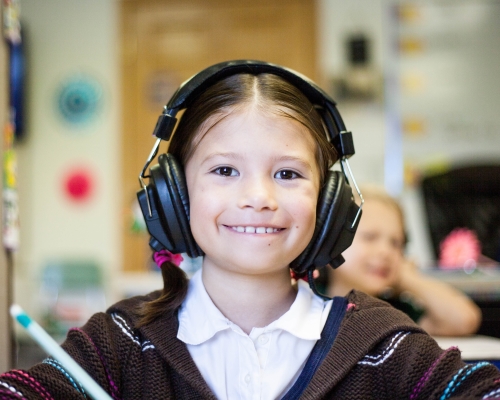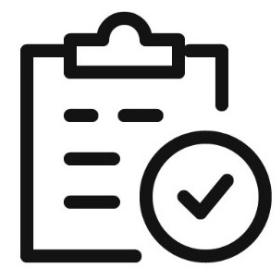On March 31, the ImmunizeBC website will move over to HealthLinkBC.ca After this date, you will be automatically redirected to HealthLink BC’s Immunization landing page. HealthLink BC provides trusted health information online and over the phone 24 hours a day, seven days a week by calling 8-1-1.
Date last reviewed:
Thursday, Jun 20, 2024
On this page:
- About the Vaccination Status Reporting Regulation
- Check your child's vaccination status
- Find out what's happening in your health authority
- VSRR frequently asked questions
About the Vaccination Status Reporting Regulation
The Vaccination Status Reporting Regulation (VSRR) was put into place on July 1, 2019. It supports the collection of immunization records of school-age children by public health so that all records are stored in one place, the Provincial Immunization Registry.
Collecting immunization information helps public health control outbreaks in schools by quickly identifying children who are not fully immunized and helps everyone get back to learning as soon as possible. It also allows public health to connect with families about the importance of disease prevention and provides an opportunity for parents and guardians to ensure their child's immunizations are up to date.
The regulation applies to all students (kindergarten to grade 12) in all schools (public and independent) within the Province's jurisdiction. This includes international students and those who are home-schooled. At this time, it does not apply to children attending schools in First Nations communities.

Check your child’s vaccination status
Please use the online Vaccination Status Indicator tool to find out if your child’s immunization records are in the Provincial Immunization Registry. If your child was immunized at a public health unit, community health centre, school, or pharmacy, their record should already be in the registry. If your child was immunized at a First Nations community health centre, doctor’s office, or outside BC, their record might not be in the registry yet.
The tool will not provide any details about your child’s immunizations, just whether their vaccination status is complete (this means your child's record is in the registry and their immunizations are up to date) or incomplete (this means either your child's record is not in the registry or they are missing vaccines).
- If the Vaccination Status Indicator shows that your child’s vaccination status is complete, you do not need to do anything.
- If the Vaccination Status Indicator shows that your child’s vaccination status is incomplete, please provide your child's record to public health or contact your local public health unit, community health centre, or primary care clinic to book an appointment to immunize your child. Some doctors and nurse practitioners also give vaccines. Find tips for locating immunization records.
How to provide your child’s record to public health:
- In-person at a public health unit, community health centre, or primary care clinic.
- Electronically through your local health authority’s website (some health authorities only).
- Electronically through the Provincial Immunization Registry submit or update your vaccine record page.
Find out what's happening in your health authority
Public health may contact you if your child's vaccination status is incomplete. You can find information on what's happening in your health authority on your health authority's website:
VSRR frequently asked questions
- What if I don't provide my child's record to public health?
-
If you choose not to provide your child’s immunization record to public health (and your child’s record is not already in the provincial registry), your child will be noted as unimmunized in the registry. If there is a vaccine-preventable disease outbreak at your child’s school, your child may be asked to stay home from school until it is safe to return, which may be several weeks. This is important to keep your child safe and to help prevent the outbreak from spreading.
- What if I don’t want to immunize my child?
-
You may be asked to sign a form if you choose not to immunize your child.If there is an outbreak of a vaccine-preventable disease at your child’s school and your child is unimmunized, your child may be asked to stay home until it is safe to return. This is important to keep your child safe and to help prevent the outbreak from spreading.If you are concerned about immunizing your child, please talk to your health care provider.Please also see the following:
- Who has the authority (power) to ask an unimmunized child to stay home from school if there is a disease outbreak?
-
Under the Public Health Act, a medical health officer has the authority (power) to exclude unimmunized children from school during an outbreak. Under the School Act of British Columbia, schools must ensure that learning continues for students who cannot attend school. These students will have lesson plans and activities sent home.
- If I refuse vaccines for my child, will I be contacted and offered the vaccines again?
-
If you refuse vaccines for your child, the refusal will be noted in your child’s chart. However, your health care provider may contact you to offer refused vaccines again. You may also receive a phone call or mail from your local health unit, reminding you that your child is due for vaccines. This is because sometimes parents change their minds and may decide to immunize their children. Reasons for this include:
- Changes in a child’s health.
- An increase in the risk of infection.
- Changes in beliefs.
- New information that a parent did not have before.
- Changes in vaccine recommendations.
When your health care provider contacts you, it also gives you an opportunity to discuss any new information you may have and to ask more questions.At a minimum, your health care provider may contact you to offer refused vaccines again at school entry and when your child is 10 and 13 years of age. You will also be contacted and offered vaccines for your child if they are unimmunized and there is a vaccine-preventable disease outbreak at your child’s school. If there is an outbreak at your child’s school and your child is unprotected, your child may be asked to stay home until it is safe to return. This is important to keep your child safe and to help prevent the outbreak from spreading. - What if my child cannot be immunized due to medical reasons?
-
There are very few reasons why a child cannot be immunized. Examples include a very severe allergy to a vaccine (called anaphylaxis) and some health conditions that weaken the immune system. If your child has a medical condition and you are unsure if your child can be immunized, please talk to your health care provider.If your child cannot be immunized for a medical reason, you may be asked to have your health care provider sign a form.
- Can a student consent to immunization on their own?
-
It is recommended and encouraged that parents or guardians discuss consent for immunization with their children.The Infants Act states that children under the age of 19 can provide consent to a medical treatment on their own if the health care provider is sure that the treatment is in the child's best interest and that the child understands the details of the treatment, including the risks and benefits. This includes providing consent for immunizations. A child a health care provider assesses as being capable of giving consent is called a "mature minor."Although there is no set age for when a child can give mature minor consent for immunizations, in most circumstances, parents or guardians give consent for children 12 years of age and younger to be immunized. However, there may be extenuating circumstances in which a child of this age may provide their own consent. Older children are given the opportunity to consent for themselves.Learn more in the HealthLinkBC File: The Infants Act, Mature Minor Consent and Immunization.
- Will my child's immunization information be kept private?
-
Yes, your child's immunization information is kept confidential (private). Any records collected by third parties (for example, your child's school) must be securely and confidentially stored and sent directly to the local health unit for review and follow-up.All privacy and information-sharing considerations related to this regulation have been reviewed by the Office of the Information and Privacy Commissioner. The transfer of information is allowed under the Public Health Act.More information:
How will student's confidential immunization information be protected?
- Students’ confidential immunization information is protected under the British Columbia’s Freedom of Information and Protection of Privacy Act (FIPPA). Health authorities must collect, use and disclose the information in accordance with FIPPA.
- In compliance with FIPPA, health authorities have established security protocols to ensure only authorized public health staff can access, view, use and disclose confidential immunization information.
- The Vaccine Status Reporting Regulation (Regulation) also includes a requirement to collect and store immunization records in a manner that ensures confidentiality and security until they are transmitted to health authorities.
- Health authorities, through public health staff, are required to ensure confidential information is securely stored, and if required, disposed in a manner that ensures confidentiality.
- In some health authorities, schools already distribute and collect immunization consent forms to facilitate immunization information flow between public health and parents to support existing school-based immunization programs (Kindergarten, and in Grade 6 and 9).
- School staff/teachers/administrators are not authorized to review a student’s immunization information. School employees will not be contacting parents to ask for immunization information on behalf of the health authorities.
- School employees will not be reviewing students’ immunization information, nor will the schools establish a database of student’s immunization information.
- Public health staff ensures that all confidential information provided to parents through schools is provided in a sealed envelope. Parents returning information through the schools should ensure their provided information is also returned in a sealed envelope to protect their child’s privacy.
- Parents may also return confidential information directly to their local health authority/unit.
What provincial legislation authorizes the collection and use of students’ immunization information?
- The collection and use of immunization information by public health officials is allowed and anticipated under the Public Health Act and associated regulations, including the Vaccine Status Reporting Regulation (Regulation).
- The Office of the Information and Privacy Commissioner (OIPC) has reviewed the privacy and information-sharing considerations of this Regulation with the Ministry of Health (MoH). The MoH will continue engagement with the OIPC to ensure privacy and information considerations are addressed and changes applied if warranted.
- Why doesn't the regulation apply to children attending schools in First Nations communities?
-
Before this regulation is put into place in First Nations communities, more discussion needs to happen between the BC Government, Ministry of Health, and First Nations governments, education, and health organizations. Health care providers working in First Nations communities are dedicated to making sure children have access to all immunizations in the provincial program. If your child attends school in a First Nations community, please check their immunization record to ensure they are up to date. Contact your local community health nurse if you have questions or don't have a copy of your child's record.
- Does the regulation apply to teachers or other school staff?
-
No. The regulation only applies to children from kindergarten to Grade 12. However, all school staff is encouraged to ensure their immunizations are up to date.

